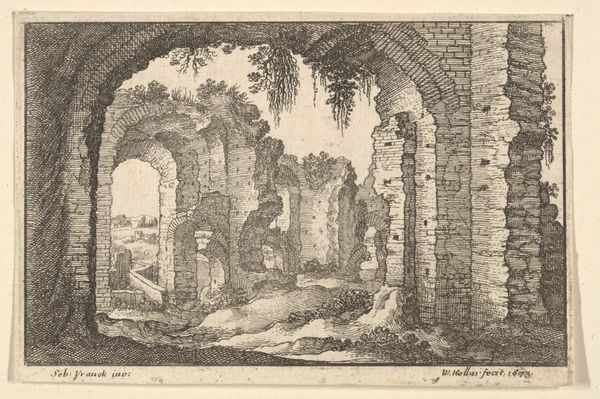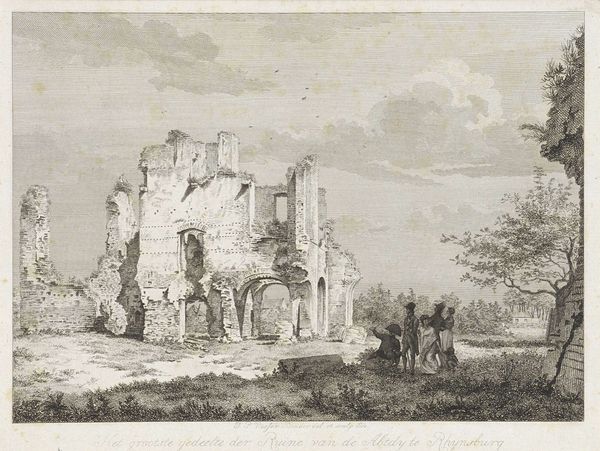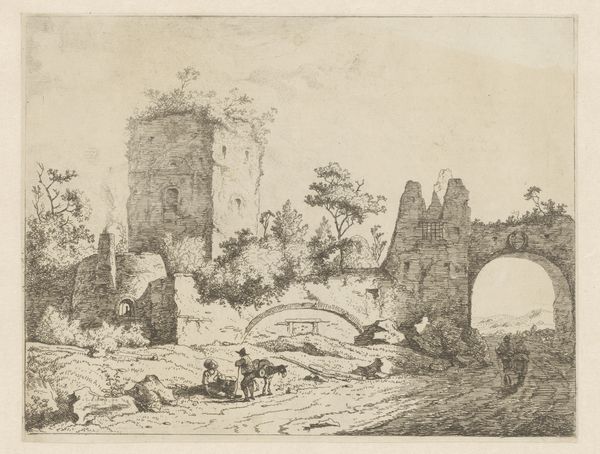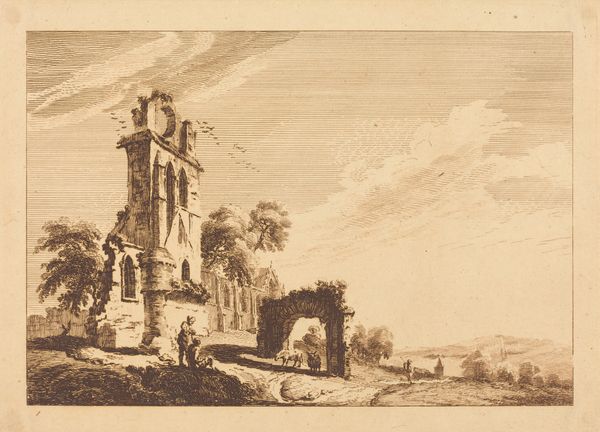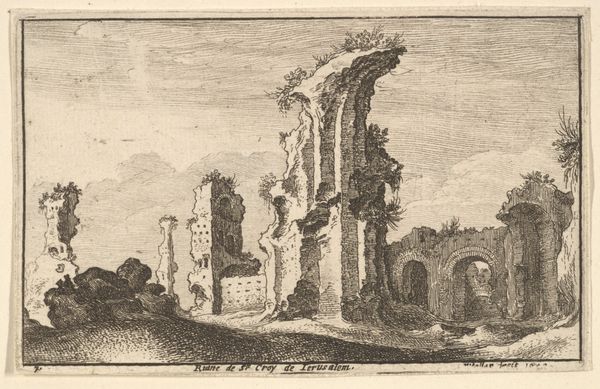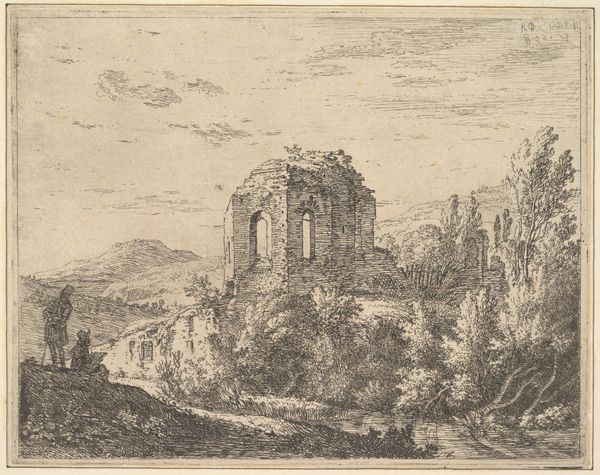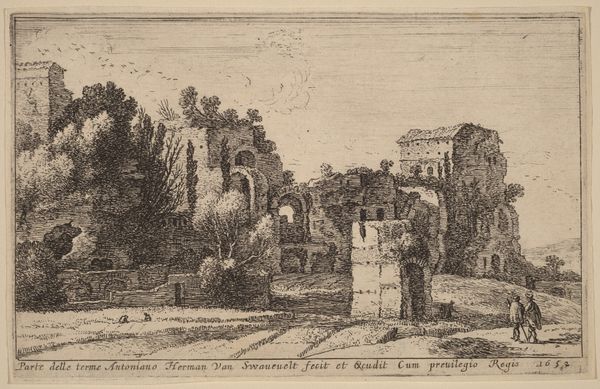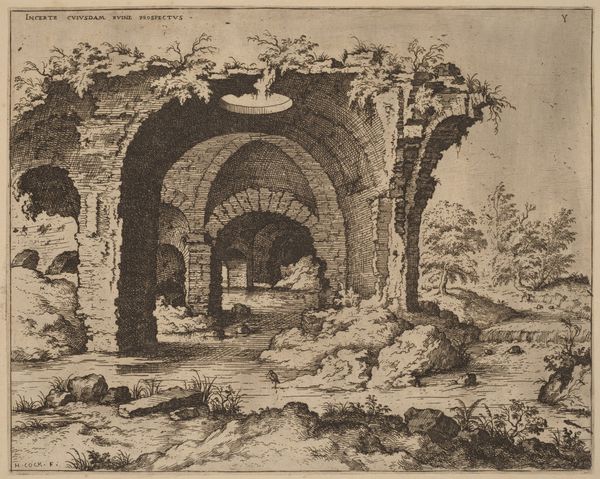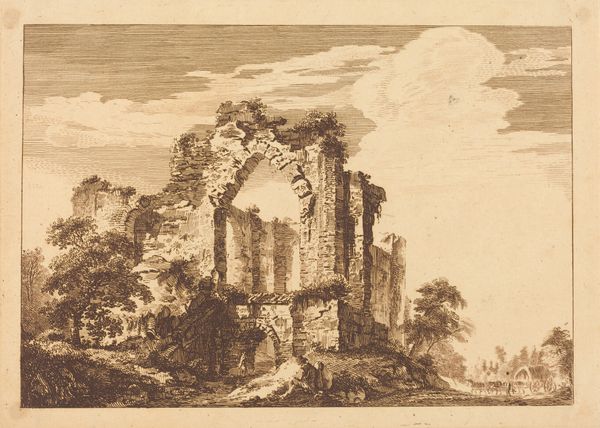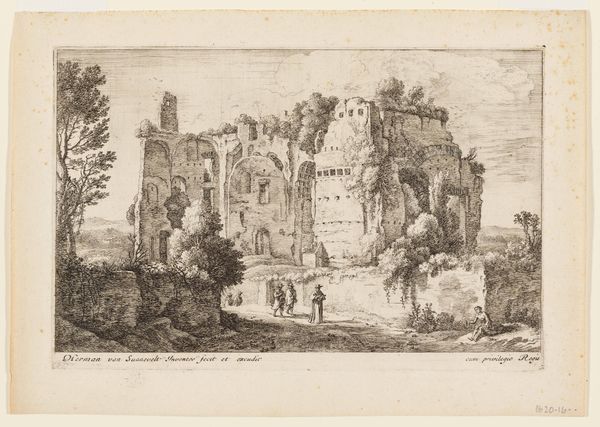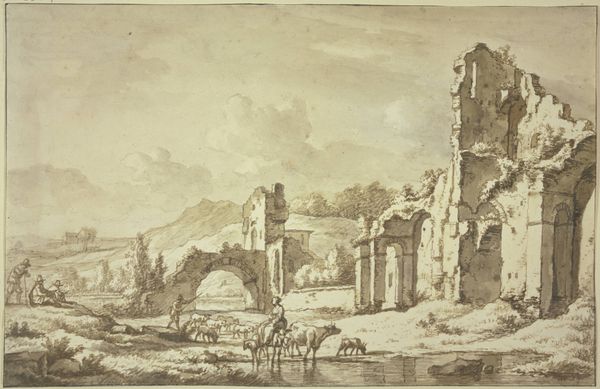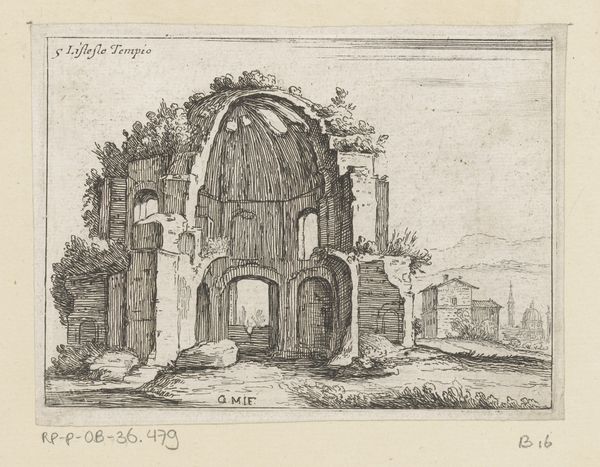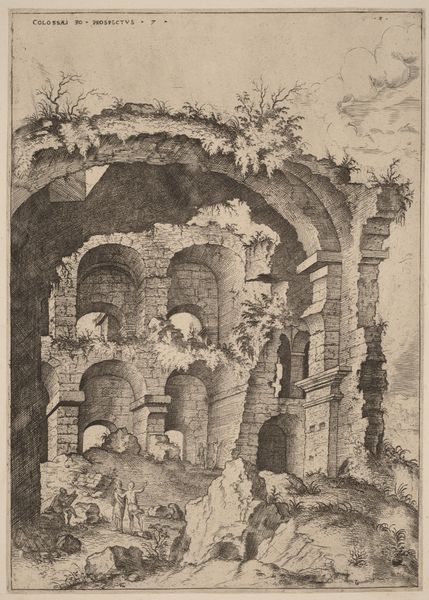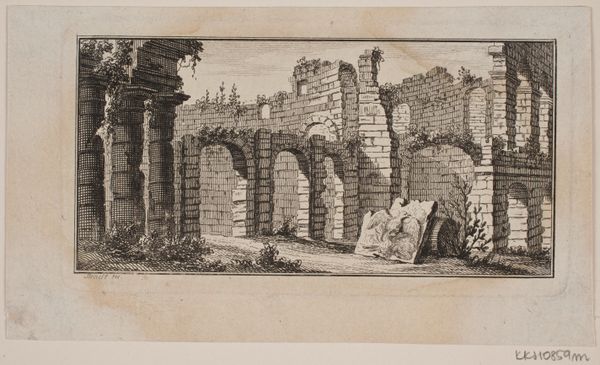
print, etching
# print
#
etching
#
old engraving style
#
landscape
#
history-painting
#
realism
Dimensions: height 183 mm, width 233 mm
Copyright: Rijks Museum: Open Domain
Editor: Here we have Charles Echard's etching, "Landscape with Ruins and Shepherd," created sometime between 1763 and 1792. There's a real sense of tranquility despite the ruined architecture. How do you interpret this work? Curator: It’s evocative, isn't it? Notice how Echard uses the ruin as a central, loaded image. Ruins in art often function as reminders of past civilizations and vanished glory, inviting reflection on time's relentless passage. What kind of emotions do these ruins evoke? Editor: Sadness, perhaps, at what was lost, but also peace…like nature is reclaiming the space. Curator: Precisely. That contrast is central to its iconography. The shepherd with his flock suggests a pastoral ideal, a harmonious existence amidst the remnants of grandeur. Think about what the cows might represent in such a scene. Are they merely part of the landscape? Editor: Maybe they emphasize the simple life, a contrast to the complex society that built the ruin? It’s interesting how the symbol changes meaning depending on its context. Curator: Indeed. Echard prompts us to consider civilization versus nature, permanence versus change. The ruin is more than just broken stones; it’s a visual metaphor for mortality. Do you think that these ruins serve a purpose in art beyond pure aesthetics? Editor: Absolutely. They're not just pretty pictures, they are vehicles to encourage contemplation and remind viewers of larger concepts, like the impermanence of human creation. Curator: A powerful reminder delivered through delicate lines and contrasting imagery. This landscape whispers volumes, doesn't it? Editor: Definitely. Seeing the cultural context really deepens the impact of what could be “just” a landscape. Thanks for helping me to understand more of it.
Comments
No comments
Be the first to comment and join the conversation on the ultimate creative platform.
